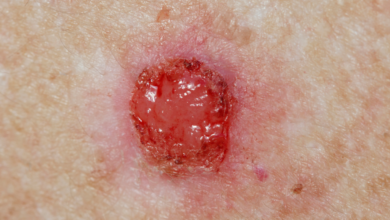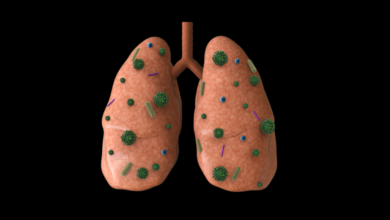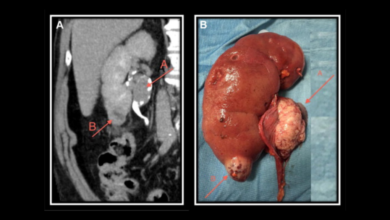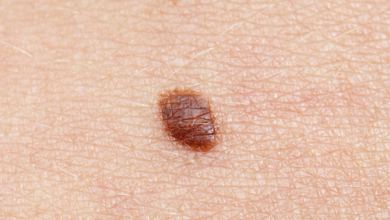Head and Neck Cancer: A Complex Disease
Head and Neck Cancer: Understanding the Complexities
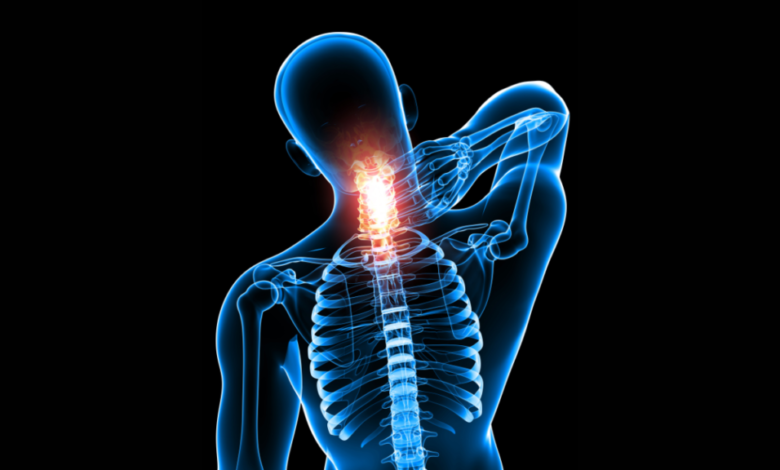
What is Head and Neck Cancer?
Head and neck cancer is a term used to describe a group of cancers that can develop in the mouth, nose, sinuses, throat, larynx (voice box), and salivary glands.
Types of Head and Neck Cancer
Several types of cancer can affect the head and neck, including:
• Oral cavity cancer: Cancers of the lips, tongue, cheeks, floor of the mouth, gums, or hard palate.
• Pharyngeal cancer: Cancers of the pharynx, the part of the throat behind the mouth.
• Laryngeal cancer: Cancers of the larynx, or voice box.
• Nasal cavity and sinus cancer: Cancers of the nasal cavity and sinuses.
• Salivary gland cancer: Cancers of the salivary glands, which produce saliva.
Symptoms of Head and Neck Cancer
Symptoms of head and neck cancer can vary depending on the location of the cancer. Some common symptoms include:
• Sore throat or hoarseness that doesn’t go away
• A sore that doesn’t heal
• A lump or mass in the neck, throat, or mouth
• Difficulty swallowing or chewing
• Changes in voice, such as hoarseness or a change in pitch
• Ear pain
• Weight loss
• Fatigue
• Coughing up blood
Causes of Head and Neck Cancer
The primary risk factor for head and neck cancer is tobacco use, including smoking and smokeless tobacco. Other risk factors include:
• Excessive alcohol consumption
• Human papillomavirus (HPV) infection
• Exposure to certain chemicals or irritants
• Poor oral hygiene
• A weakened immune system
Who Can Suffer from Head and Neck Cancer?
Anyone can develop head and neck cancer, but it is more common in older adults and those who smoke or drink heavily.
Diagnostic Tests for Head and Neck Cancer
To diagnose head and neck cancer, a doctor may use a combination of tests, including:
• Physical exam: A doctor will examine the head, neck, and mouth for any abnormalities.
• Endoscopy: A procedure to examine the inside of the throat and mouth using a flexible tube with a light and camera.
• Biopsy: A small tissue sample is removed and examined under a microscope to confirm the diagnosis.
• Imaging tests: CT scans, MRIs, and PET scans can help determine the extent of the cancer.
Stages of Head and Neck Cancer
The staging of head and neck cancer helps determine the extent of the disease and guides treatment decisions. The most common staging system is the TNM system, which considers the size of the tumor (T), the spread to nearby lymph nodes (N), and the presence of distant metastases (M).
Treatment of Head and Neck Cancer
The treatment for head and neck cancer depends on the stage and type of cancer, as well as the patient’s overall health. Common treatment options include:
• Surgery: To remove the cancerous tumor and surrounding tissue.
• Radiation therapy: To kill cancer cells with high-energy rays.
• Chemotherapy: To kill cancer cells throughout the body.
• Targeted therapy: To target specific molecules involved in cancer cell growth.
Diet and Head and Neck Cancer Prevention
While a healthy diet can’t completely prevent head and neck cancer, it can contribute to overall health and reduce the risk of certain cancers. Here are some dietary recommendations:
• Limit alcohol consumption: Excessive alcohol consumption is a risk factor for head and neck cancer.
• Quit smoking: Smoking is a major risk factor for head and neck cancer.
• Eat a balanced diet: A diet rich in fruits, vegetables, and whole grains can help.
• Limit processed meats: Consuming too much processed meat can increase the risk of certain cancers.
Overall Survival Rate of Head and Neck Cancer
The overall survival rate for head and neck cancer varies depending on the stage of the cancer, the type of treatment received, and the individual’s overall health. Early detection and timely treatment significantly improve the prognosis.
Doctor to Consult
An ear, nose, and throat (ENT) specialist or a head and neck surgeon is the best doctor to consult for head and neck cancer.
Diseases Associated with Head and Neck Cancer
Head and neck cancer is often associated with other health conditions, including:
• Human papillomavirus (HPV) infection: Certain types of HPV can increase the risk of head and neck cancer, particularly oropharyngeal cancer.
• Chronic inflammation: Chronic inflammation of the mouth or throat can increase the risk of cancer.
How to Prevent Head and Neck Cancer
In addition to a healthy diet, the following strategies can help prevent head and neck cancer:
• Quit smoking: Smoking is the primary risk factor for head and neck cancer.
• Limit alcohol consumption: Excessive alcohol consumption can increase the risk.
• Protect your skin from the sun: Sun exposure can increase the risk of skin cancer, which can sometimes spread to other parts of the body, including the head and neck.
• Regular dental check-ups: Regular dental check-ups can help detect oral cancer early.
• HPV vaccination: Getting vaccinated against HPV can help protect against HPV-related cancers.


